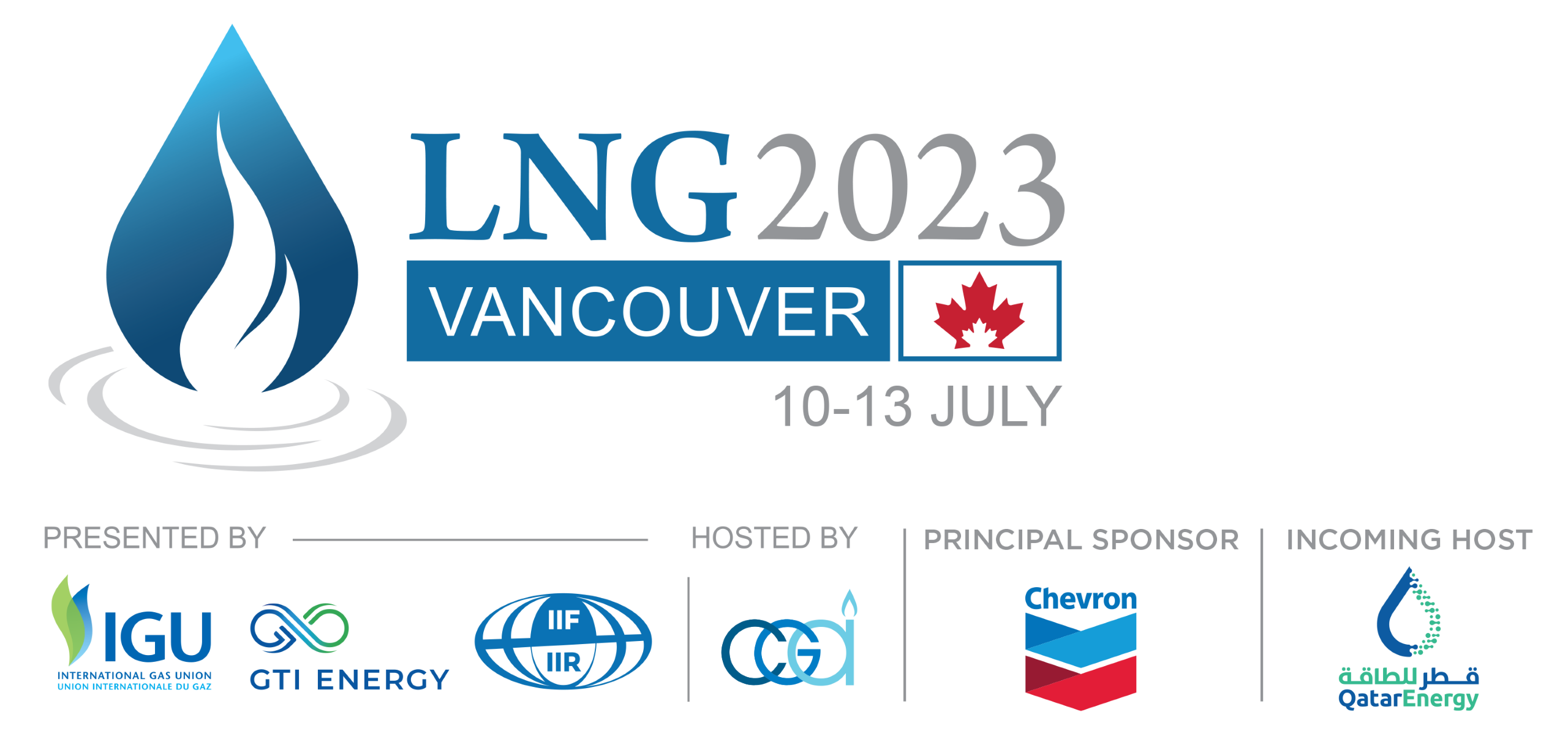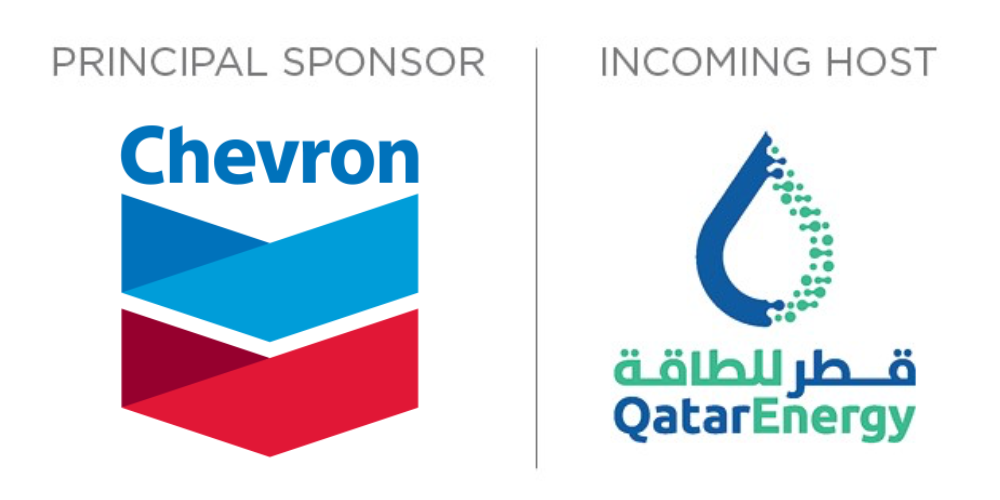Interactive debates between the audience and senior-level executives from top energy companies on the most important commercial and strategic topics.
Spotlight Sessions
Monday 10 July 2023
Financing the Next Wave of LNG Market Growth – Securing Project Financing
Financing for energy projects continues to evolve at a fast pace. As ESG considerations grow, classic capital investors are looking for high accountability investments with a continued focus on LNG’s long-term appeal to displace coal from power systems around the world. Venture capital is also a leading participant in LNG projects, helping established exporters act swiftly when it comes to deploying private equity financing to take strategic advantage of emerging opportunities such as FSRU demand. Will traditional investors continue to provide the required funding or will new players like venture capitalist enter the arena to fund the next range of LNG projects around the world?
LNG’s Role in Europe’s Long-Term Energy Security
Energy security is an essential component of Europe’s economic prosperity, industrial and commercial activity. Natural gas accounts for over 20% of the EU’s primary energy mix and is the dominant fuel for household energy use. With domestic gas production reduced over the last decade, the EU has becoming increasingly dependent on imported gas to meet about 80% of its needs. As a result, securing reliable and affordable supply is essential for the region’s energy security. With supply from Russia looking increasingly uncertain, energy security is back in focus, even as the EU tries not to take their eyes off their decarbonization goals. How can they work with high accountability partners to ensure the long-term resilience of their energy system?
Measuring up to the Methane Challenge
The Global Methane Pledge (GMP), launched at COP26, aims to support a collective effort to reduce global methane emissions by at least 30% from 2020 levels by 2030. A significant reduction in methane emissions from oil and gas operations is one of the critical short-term options available to help meet this target in advance of the Paris Agreement's goals. What is the energy industry doing to lead the mitigation effort? How can it achieve the significant cuts needed as swiftly as it can? Is the industry doing enough, or how can it do more?
Innovation in LNG Terminals and FSRUs
Europe’s pivot from pipeline gas from the East (Russia) to LNG is exposing regasification infrastructure bottlenecks. Over 20 FSRUs are at various stages of planning and construction for deployment in Europe over the next 5 years, while onshore terminals are being planned with an eye on conversion to hydrogen and ammonia. This step change in demand has renewed focus on LNG import terminals, with ever increasing standards for safety, reliability, and environmental impact. Moreover, developers are keen to expand down the chain to stimulate demand in emerging markets. How will developers address efficiency, transfer solutions, marine infrastructure, and future fuel readiness of import terminals?
Tuesday 11 July 2023
The Forecast and Appetite for Investment in LNG Projects
As the global energy crisis deepens, increasing consumer demand and growth are leaving nations scrambling to secure reliable energy sources. Both LNG demand and new investments in LNG infrastructure around the globe are set to surge. Supported by a record level of newly signed Sales and Purchase Agreements (SPAs) in 2022, a new wave of LNG project sanctioning is expected in the coming years. So, is it now or never? Will large LNG projects seize the opportunity and secure financing or will smaller scale projects, with less capital at risk, be a safer choice?
Natural Gas and the Future Economy
From industrialization to clean air to higher standards of living, access to cleaner and more affordable energy in the form of natural gas can have a game changing impact on the world’s energy hungry emerging nations. Most outlooks suggest that emerging economies will continue to require natural gas even in rapid decarbonization emission reductions scenarios as the fuel is challenged in the OECD nations over the next few decades. It will also continue to find favour in hard to abate industrial sectors where displacement is likely to be more difficult than in the power sector. What does the natural gas consumption mix will look like in the decades ahead?
Reconciliation and Canadian LNG: Indigenous Energy Leadership on the World Stage
Canada’s Indigenous peoples are at the forefront of Canada’s response to the urgent global need for LNG – all of Canada’s proposed LNG projects and their associated infrastructure have significant First Nations partnership, including ownership stakes, a regulatory role or business development agreement. With over 300 years of supply and some of the highest environmental standards in the world, Canada and Canada’s First Nations are leading the way in bringing LNG to global markets while creating inter-generational expertise and wealth for Indigenous communities across the value chain. Are Canada’s efforts at reconciliation and Indigenous partnerships a viable gold standard for developing communities around the world?
The Regulatory Forces Shaping the LNG/Natural Gas Market Landscape
Regulators play an important role in market development and associated infrastructure for LNG. The panel will discuss the role regulation can and will play in fostering the global gas market and how regulations can play a role in establishing competitive market structures in developing countries. How can the regulator ensure that reliable and low-cost natural gas becomes an essential element of the clean energy/decarbonization mix? Finally, The panel will address how poor regulations have hurt market competition and gas use.
Wednesday 12 July 2023
The Interrelationship between Geopolitics and LNG Trade Flows
As an energy commodity critical to power systems and economic growth around the world, LNG trade has always had a geopolitical angle. Recent developments include the rise of China as an importer and the rise of the US as an exporter. US LNG will play an increasingly critical role in Europe’s energy security, and over time, in Europe’s energy transition. Meanwhile, China’s pivot has been an increased focus on domestic production and Russian pipeline gas, evidenced by the recent progress of the Power of Siberia II line. With the conflict in Ukraine, will this latest twist in geopolitics trigger a cold war of the cold gold, with ideological alignment driving LNG trade flows?
Enabling the Transition to Hydrogen/Ammonia
The jury is out on the final fuel of the future, with no single silver bullet yet able to satisfy the world’s complex energy needs. A multi-fuel future may well be in the cards as we head into a defining decade for the future of energy. Hydrogen has been touted as a crucial molecule in the energy transition, which, depending on the type of energy input, can be a low-to-no emissions fuel. Storing and transporting hydrogen in cryogenic conditions has been studied extensively, with ammonia emerging as a viable hydrogen-carrier molecule. LNG, with its low boiling point, remains very relevant to both hydrogen and ammonia transportation and infrastructure. How can LNG know-how be leveraged to prepare for a greater penetration of these fuels?
Increasing Efficiencies and Reducing Environmental Impact
More than 50% of upcoming LNG capacity has some form of carbon mitigation technology embedded into the development concept – electrification, carbon capture, or a combination of both. This figure is likely to increase as projects progress towards commercialization and financing. The key to success will be emissions reduction and efficiency measures across the value chain, from electrification and flaring reduction and monitoring in upstream operations, to carbon capture and cold energy utilization at the end user site. How can projects harness the virtuous spiral of increasing efficiency and reductions?
Thursday 13 July 2023
The Role of LNG in Meeting Nationally Determined Contributions
The sum of Nationally Determined Contributions (NDC's) from all participating nations gives an estimate of the world’s pathway towards decarbonization and efforts to keep global warming well below 2 degrees Celsius. NDCs are expected to be reviewed and updated every five years, with most parties having already submitted an updated version in 2021 following the Paris Agreement’s signing in 2016. LNG and natural gas present an opportunity for nations to shift away from other carbon-intensive fuels such as coal in a bid to reduce emissions and improve air quality. However, despite the obvious immediate benefits, LNG is still a fossil fuel. How can countries utilize LNG as a transition and destination fuel, while meeting targets outlined in their NDCs in an economically and environmentally sustainable manner?
Progress in Ground and Rail Transportation LNG Applications
The trucking industry is exploring the potential for heavy-duty vehicles to use LNG for long range journeys, while cutting greenhouse gas emissions, sulfur oxides and particulate matter, and reducing reliance on diesel. In the European Union, the LNG Blue Corridors project has proven the viability of establishing an LNG-fueling network for medium- and long-distance ground freight. Furthermore, LNG has potential for weight- and distance-intensive freight rail such as mine-to-port transportation. What does the future hold for LNG as a road and rail fuel? How can the ground and rail transportation sectors leverage this cleaner alternative to fuel oil and diesel?
Market and Commercial Innovation – Pricing, Indexation
It’s no surprise that LNG contracts with shorter duration, flexible destinations and spot indexation have gained popularity over the years. Spot or gas-linked contracts were a cheaper choice compared to oil-linked ones until 2022 when Title Transfer Facility (TTF) was five times higher than Brent-indexed deals. LNG will be essential for European and Asian supply portfolios to secure energy reliability in the medium-to long-term. How will LNG buyers re-strategize contract duration and indexation to ensure supply at affordable rates over a sufficient time span along their emissions reduction journey?
Small and Micro-Scale LNG of the Future
The small and micro-scale LNG industry continues to show promise to displace more polluting fuels in shipping, trucking, and power generation, with participation from major energy companies and ample policy support. More stringent emissions regulations are likely to spur additional LNG demand, while the lower capex requirements and short cycle returns de-risk small scale projects from long-term demand uncertainty. Small scale projects can provide an outlet for flared volumes that have no takeaway capacity at present and are more likely to be accepted in environmentally aware communities. However, continuous cost discipline is necessary to ensure competitiveness for the end user. Can this niche and nascent industry revolutionize LNG consumption?

.jpg)

